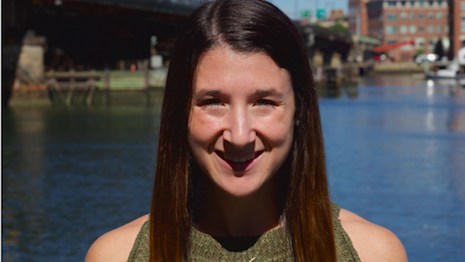 Abby Katz is marketing manager of Mavrck
Abby Katz is marketing manager of Mavrck
By Abby Katz
The travel and tourism industry is one of the world’s fastest-growing sectors, with bookings hitting close to $1.6 trillion in 2017.
Thanks to technological advancements paired with changing consumer behavior, long gone are the days when we visited bricks-and-mortar travel agents every time we planned a trip. In this industry, like many others, innovation will continue to fuel growth.
Over the past two years, travel startups raised a cumulative $30 billion in funding – almost totaling the amount raised over the past 10 years.
With companies such as Airbnb and Uber setting the stage for a completely new era of travel, industry players are forced to adapt to a new rulebook.
What these brands have in common is not just an obsession with customer experience, but also how they leverage technology and design to embed influencer-generated content (IGC) at every touch point and own their respective shares of voice.
For these customer-obsessed leaders, influence is not just one customer journey touch point – it is the customer journey, a customer experience powered by customer influence.
Provide travelers with localized experiences
According to a recent Expedia survey, 76 percent of baby boomers and 62 percent of Generation X consumers rate “experience authentic local culture” as the most important aspect of their travel decision making.
To deliver authentic experiences to consumers, travel and hospitality brands need local expertise, and leading brands have found success in partnering with local influencers, small businesses and community leaders to create unique experiences, knowing that people are seeking these out.
Last year, Airbnb launched its Experiences platform, an initiative that enables small businesses, entrepreneurs and community non-profits to create and promote immersive experiences for travelers.
This year, Airbnb is investing $5 million in Experiences, with plans to expand the initiative to include 200 cities in the United States. Why? Because the number of Experiences booked has increased 500 percent, with consumers actively looking for more authentic experiences.
Leverage Pinterest to help travelers decide on their next adventures
Forty-million-plus people in the U.S. are on Pinterest every month for travel ideas and 49 percent of U.S. travelers who spend $1,000 or more on travel are on Pinterest.
Not only does Pinterest reach almost twice as many online travelers as top online travel sites, but also 75 percent of Pinners say travel Pins from brands are useful, and nearly all will act on what they see, often planning spontaneous trips.
The Four Seasons uses Pinterest to connect its hotels with travelers looking for luxury experiences and expert destination advice by curating influencer-generated travel, food and luxury lifestyle content to inspire guests.
Since the launch of its main Pinterest account, Four Seasons created profiles for more than 81 hotels and resorts around the world, each with a different aesthetic dependent on the hotel location.
The Four Seasons’ Pinterest presence has resulted in a large increase in traffic to the company’s Web site.
Year over year, the Four Seasons saw a 1,000 percent increase in daily visitors and a 1,700 percent increase in daily average clicks to its website from Pinterest.
Launch new millennial-focused brands
Millennials spend between $200 and $300 billion per year on travel – a number that is expected to continue to grow.
Upon examining how millennials select trip destinations, 87 percent were influenced by social media, which makes sense given that 70 percent of millennials follow travel brands on social media.
Leading travel and hospitality brands understand this and, as such, have developed strategies based on this demographic’s personality traits and habits. Think personalized and spontaneous interactions, easy check-ins, and reasonable prices.
Marriott’s introduction and rapid expansion of Moxy Hotels is one of the many examples of legacy hotel brands making geared plays towards attracting the millennial demographic.
According to Vicki Poulos, global brand director of Moxy Hotels, “We did tons of research to find out what millennials wanted, and the ideas of authenticity and communal spaces were very important. The idea is to create a living room where you can hang out with people and also always be plugged in.”
Other brands who have taken a similar approach include Tru by Hilton and Hyatt Centric.
GIVEN THAT TODAY’S consumers are increasingly influenced by online sources, it is not surprising that 68 percent of millennials found ideas for their most recent trips on Facebook.
With social media platforms such as Facebook, Instagram and Pinterest beating out traditional tourism advertising sources for millennials, travel and hospitality brands have the opportunity to be turning to these platforms to amplify high-performing influencer-generated content.
In doing so, brands should also be collaborating directly with influencers to create or co-create new, original content and then distribute via a combination of available tools such as Facebook’s Trip Consideration. The brands that do will be leading the pack by 2020.
Abby Katz is marketing manager of influencer marketing platform Mavrck, Boston.
